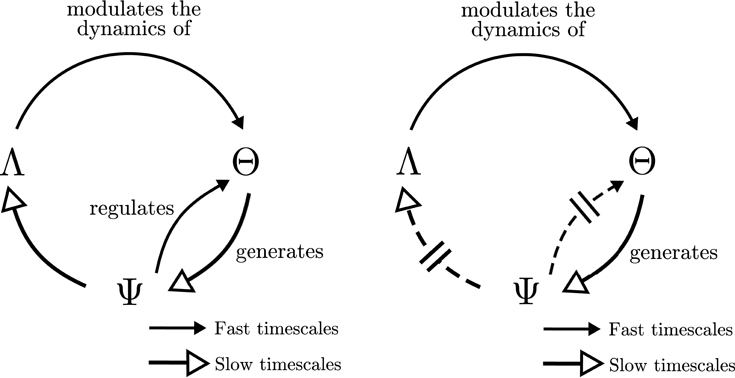Miguel Aguilera complex systems, neuroscience and cognition
Extended Neural Metastability in an Embodied Model of Sensorimotor Coupling
This paper is an extension of some of the results worked during my PhD thesis. We investigate how the source of metastability in cognitive activity is not necessarily restricted to the action of neural circuits alone, but in some circumstances it can be generated from the sensorimotor coupling between an agent’s brain and its environment.
Aguilera M, Bedia MG and Barandiaran XE (2016) Extended Neural Metastability in an Embodied Model of Sensorimotor Coupling. Frontiers in Systems Neuroscience 10:76. doi: 10.3389/fnsys.2016.00076
Using a robotic simulated agent and information theoretical tools we are able to show how (1) the bidirectional coupling between agent and environment brings the system closer to a regime of criticality and triggers the emergence of additional metastable states which are not found in the brain in isolation but extended to the whole system of sensorimotor interaction, (2) the synaptic plasticity of the agent is fundamental to sustain open structures in the neural controller of the agent flexibly engaging and disengaging different behavioral patterns that sustain sensorimotor metastable states, and (3) these extended metastable states emerge when the agent generates an asymmetrical circular loop of causal interaction with its environment, in which the agent responds to variability of the environment at fast timescales while acting over the environment at slow timescales, suggesting the constitution of the agent as an autonomous entity actively modulating its sensorimotor coupling with the world.
